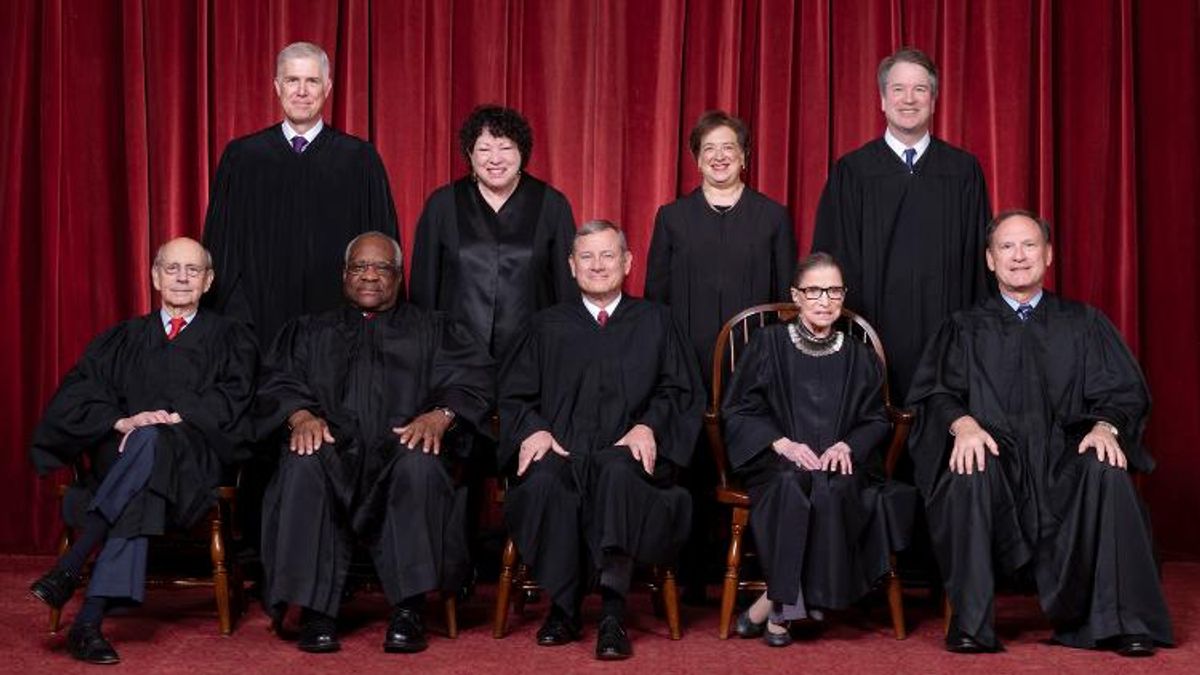It's nearly five months since the U.S. Supreme Court heard arguments in three cases brought by LGBTQ Americans who have faced employment discrimination. Now in the context of this devastating coronavirus pandemic, the Supreme Court has stopped hearing cases, so deliberations on those they have heard will be accelerated. We could be hearing very soon from the justices on this critical question of LGBTQ discrimination protections.
Whichever way the ruling goes, it will have far-reaching impact. A decision affirming that federal law protects LGBTQ people from employment discrimination will be transformative, clarifying to millions of Americans that they must be respected in the workplace no matter who they are or who they love. A decision in the other direction would be a serious blow but urgently underline for lawmakers that it is time for them to pass LGBTQ-inclusive nondiscrimination protections.
This topic is personal to me. Each week as Minister of Spiritual Life & Learning at Fountain Street Church in Grand Rapids, Mich., I speak with congregants from all walks of life, including LGBTQ people and their loved ones. Together, we believe in the dignity and worth of all people and pray for an end to suffering around the world.
I am also a gay man who has experienced discrimination numerous times in my career.
In undergraduate school, in West Michigan, I held a part-time position in a local church. I hadn't made a point of sharing that I am gay, but one day, the topic came up with my colleagues and supervisor. It didn't seem like a big deal -- but shortly after the conversation, my supervisor told me she had found someone to replace me because, she said, I had made it clear that I was no longer interested in serving the church. I was stunned and embarrassed.
Several years later, it happened again: Days into my first teaching placement my site supervisor told me not to return to the work and that she was working to find me a placement in a different district with a cooperating teacher. She later told me that on her first visit to my previous classroom, the teacher I worked with said she thought I was gay. My site supervisor knew instantly that she would have to rearrange my placement "in order to protect me." She later said had wanted to save me the pain of realizing that my sexual orientation was grounds for dismissal.
I was fortunate -- neither of these experiences carried devastating financial losses. Neither was a position on which I relied for my family's survival. But these experiences were emotionally debilitating. Now, fortunately, I am happily employed in a community that affirms who I am and welcomes my husband and me.
Many LGBTQ Americans are not as fortunate as I am. Many have been forced to hide their identity, shield others from their most authentic hopes and dreams. That's because in Michigan and 29 other states -- and at the federal level -- there aren't explicit laws protecting LGBTQ people from discrimination. Without these protections, LGBTQ people are vulnerable. That must change.
I'm grateful to Aimee Stephens for blazing a trail at the U.S. Supreme Court by sharing her story of being fired from her job after coming out as transgender. Her case is the first ever about transgender equality to be argued before the justices. Hers is the case that I think about every day.
This year I joined more than 50 of my colleagues signing onto a first-of-its-kind letter featuring the voices of faith leaders in West Michigan who support LGBTQ nondiscrimination protections. I signed not just because of my story -- but because of all the young people who feel unwelcome and unprotected because of our nations lack of LGBTQ protections.
Everyone deserves a safe, welcoming community. It's time for all LGBTQ Americans to feel safe in the communities they call home.
Rev. Christopher Roe is an ordained minister in the American Baptist Church and the Minister for Spiritual Life and Learning at Fountain Street Church in Grand Rapids.


















































































